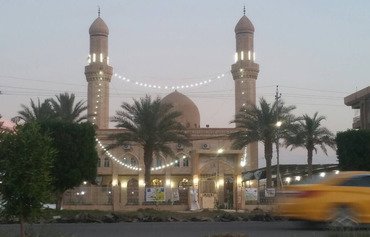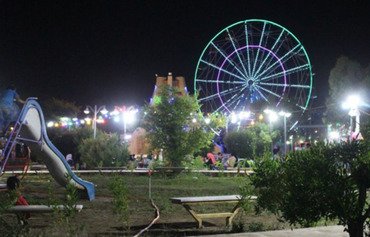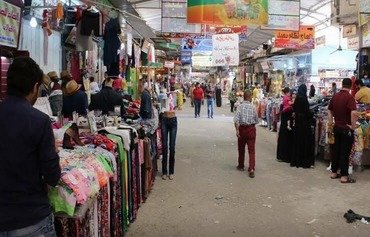Ramadan customs and traditions that had been banned by the "Islamic State of Iraq and Syria" (ISIS) for three years are once again in evidence in Anbar province.
When ISIS was in control of parts of the western province, it prevented the taraweeh prayer and the raising of the call to prayer in mosques, as well as restricted various types of social gatherings.
In addition to its use of false fatwas to prevent certain prayers under the pretext that they were heretical, ISIS blew up the shrines of religious scholars.
But since the group's ouster from much of the province, the liberated and safe areas of Anbar are showing signs of return to life again, Anbar police chief Maj. Gen. Hadi Kassar Erzaij told Diyaruna.
These areas are now "witnessing the return of customs and traditions known to the people of the province", he said.
"The security services provided protection to all mosques during taraweeh prayers, after the evening prayer, every day during the month of Ramadan," Erzaij said.
They also strengthened the security presence in marketplaces and near public gardens and parks to pre-empt any possible attack, he said.
"All mosques are open in the cities of Anbar, where prayers and sessions of dhikr, duaa and taraweeh prayers are held," said Sheikh Hashim al-Jawhani of the Sunni Endowment Directorate.
These also include counseling and prophetic preaching sessions that traditionally precede the afternoon prayer in the month of Ramadan, he told Diyaruna.
"All Ramadan traditions were banned [under ISIS], but today, under the stability and presence of Iraqi forces and the co-operation of citizens in Anbar, movement is safe for civilians," he said.
Entry to mosques is under security inspection for taraweeh prayers only, he said, noting that large numbers of worshipers are attending these prayers.
Social activity during Ramadan
"Ramadan nights are different from others, as families go out to the parks after breaking their fast," al-Jawhani said.
Here, they visit relatives and mingle with other families, said Anbar tribal fighter Sheikh Qatari al-Samarmad of al-Baghdadi district, west of Ramadi.
"Cafes, gymnasiums and all squares and parks [in al-Baghdadi] are witnessing a high turnout" after iftar, he told Diyaruna.
Muhaibis competitions have been established between popular teams, he said, "in addition to football tournaments between the districts".
"The month of Ramadan has a special flavour," Fallujah resident Khalid Abdullah Mohammadi told Diyaruna.
"Despite fasting hours and high temperatures, families go to the market in the morning to prepare for iftar and suhour meals," he said.
"The holy month is characterised by things that we do not see on normal days, including the Musaharati (dawn awakener), who roams the streets and residential areas to wake people from their sleep," he said.
Musaharatis had previously received death threats from ISIS, according to Mohammadi.

![Food is prepared for an iftar gathering of Fallujah residents, who are celebrating the holy month without the presence of the 'Islamic State of Iraq and Syria'. [Saif Ahmed/Diyaruna]](/cnmi_di/images/2017/06/14/8222-iraq-iftar-600_384.jpg)






